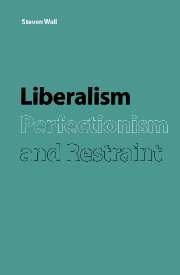6 - Personal autonomy and its value (I)
Published online by Cambridge University Press: 09 November 2009
Summary
As I mentioned in the introduction, a liberal perfectionist theory is a perfectionist theory that holds that personal autonomy is a central component of human flourishing. Accordingly, a large part of the defense of such a theory must consist in making it clear what autonomy refers to and what justifies its value.
This chapter and the next present an account of the nature and status of personal autonomy. The account gives answers to three questions: (1) What are the constituent elements of this ideal? (2) What considerations account for its value? (3) How important is it for political morality? The three questions are distinct; but, as we shall see, the answers given to each inform the answers given to the other two.
Introduction
Even a casual glance at the literature on the topic will suggest that there is not a shared understanding of autonomy. Different writers use the concept in different ways. Here I am not interested in cataloguing how it has functioned in the philosophical literature or in describing how it is used in everyday discourse. I hope to present a sound account of the concept. This objective is primarily critical, not descriptive. As a result, the plausibility of my account of autonomy turns, in the end, on how good my arguments are for its value and importance.
Still, to cut short potential misunderstandings, I begin with some stipulative remarks. Personal autonomy does not refer to metaphysical autonomy. No effort will be made here to shed light on, much less resolve, the vexatious problem of free will. Personal autonomy also does not refer to Kantian autonomy.
- Type
- Chapter
- Information
- Liberalism, Perfectionism and Restraint , pp. 127 - 161Publisher: Cambridge University PressPrint publication year: 1998



